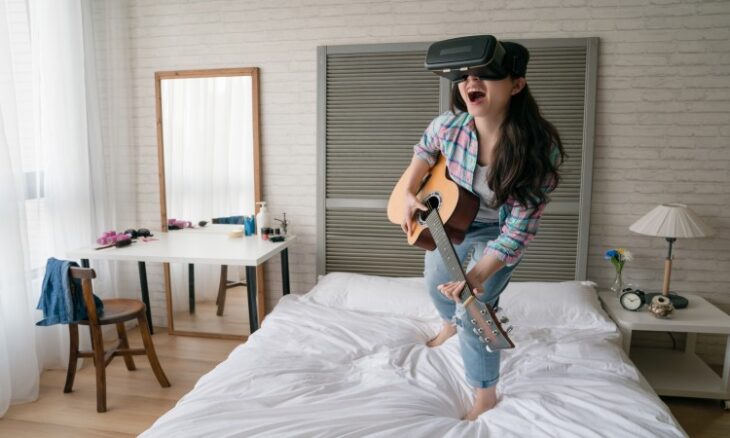Björk’s Vulnicura VR returns in a remastered form
Björk’s 2015 album, Vulnicura, a poignant narrative of her emotional struggle following the end of a long-term relationship with American artist Matthew Barney, has now found renewed expression through virtual reality. The remastered edition of Vulnicura VR has been launched for the Apple Vision Pro and Meta Quest headsets, inviting fans to immerse themselves in the raw emotions of the album in a more personal way.
The project positions the listener inside Björk’s world. From the opening track, users are immersed in stark Icelandic scenery, dominated by jagged mountains and overcast skies. Moss-covered landscapes are recreated with striking detail, and at different moments, the artist dissolves into fragments of particles. One of the most notable sequences allows participants to reach for long threads and symbolically stitch together her broken heart, bringing the music’s emotional weight into a tactile realm.
Developed by PulseJet Studios in San Francisco, the remastered version modernises a project first introduced nearly a decade ago. At that time, consumer VR was in its early stages, with headsets like the HTC Vive and Oculus Rift entering the market and sparking enthusiasm for immersive content. The evolution of VR technology has been significant, and the creators of Björk’s ambitious project had to work around substantial constraints. This project is a testament to the rapid advancement of VR technology.
The original Vulnicura VR was showcased as part of Björk Digital. This exhibition toured between 2016 and 2020, appearing in institutions including the Museum of Modern Art in New York and the Miraikan in Tokyo. Visitors could experience the music through tethered computers and cumbersome controllers. Still, the installations were often unreliable and awkward to manage. In 2019, a version became available for Steam-compatible headsets, allowing wider access. However, it retained many of the same issues as the museum edition, requiring computers and hand controls.
The new release resolves those barriers by embracing standalone headset technology. Users can now roam freely with intuitive hand tracking, improved navigation, and sharper visuals. The spatial audio has been refined to heighten the experience. At the same time, natural elements such as moss, rocks, and flowers have been meticulously rendered to echo Iceland’s landscape. PulseJet Studios sees the project not simply as a remaster, but as a reimagining made possible by technological advances that eliminate earlier compromises.
The remastered work arrives during a pivotal moment for the VR industry. Market research from International Data Corporation forecasts significant growth in the coming years, projecting a compound annual growth rate of nearly 40% through 2029. However, opinions remain divided, with more than half of surveyed game developers describing the industry as stagnating. This tension highlights the uncertain path of VR, balancing between promise and commercial reality.
Björk’s project is a powerful demonstration that VR can extend beyond mainstream concert recordings or simple immersive showcases. By merging music, landscape, and interactive visuals, it underscores the potential of VR as an artistic medium. This project is not just a showcase of technology, but a source of inspiration for the creative potential of VR.
For Björk, the democratic nature of music and her interest in innovative formats have long shaped her artistic trajectory. With the remastered edition of Vulnicura VR, her personal story of loss now reaches a broader audience, not only preserving the emotional intensity of the original album but also offering a fresh perspective on how technology can transform the way art is experienced.










